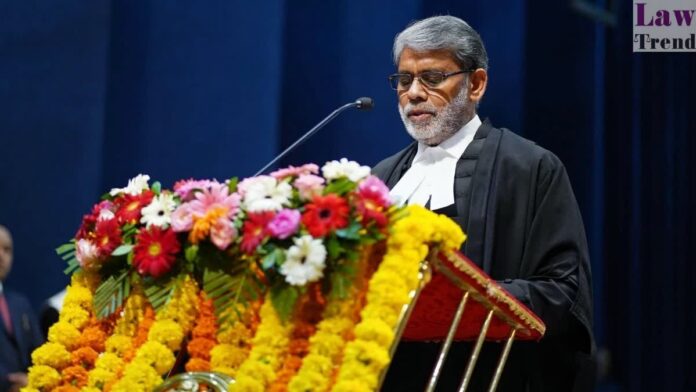In an emotional farewell ceremony held at the Madhya Pradesh High Court campus on Tuesday, Chief Justice Suresh Kumar Kait reflected on his remarkable life journey—from a labourer’s son to one of the country’s highest judicial positions. With tearful eyes and a grateful heart, Justice Kait paid homage to Dr. B.R. Ambedkar, crediting the architect of the Indian Constitution for making such a journey possible.
Justice Kait, who is set to retire on May 24, recounted the challenges of his early life. His father was a daily-wage labourer, and Kait himself worked as a labourer during his school years to support his education. Recalling his school days, he shared that his classes were held under trees due to the lack of proper classrooms. “I never imagined I would become a judge,” he said, emphasizing the role education played in transforming his life.
He completed his LL.B. from Delhi’s Central University and began practicing law in the capital, where he once served as a junior to former President Ram Nath Kovind. In 2008, he was appointed a judge of the Delhi High Court. Coincidentally, on the same day, Badar Durrez Ahmed, son of former President Fakhruddin Ali Ahmed, also took oath as a High Court judge. Justice Kait recalled how this moment honored Dr. Ambedkar, as it showed how both a labourer’s son and a President’s son could rise to the same bench.
During his tenure, Justice Kait highlighted the urgent need for judicial reform in Madhya Pradesh. “The sanctioned strength of judges in the High Court is 53, but we only have 33. This results in a heavy workload,” he said. Since September 27, he revealed he had heard over 3,800 cases. He has formally proposed to the central government to increase the number of judges to 85 to address the backlog.
Justice Kait also brought progressive changes to judicial recruitment. He abolished the 70% mark requirement for civil judge aspirants, noting it disproportionately affected students from government universities, who often come from economically weaker sections.
His tenure saw several high-profile and socially impactful decisions. Notably, he supervised the disposal of hazardous waste left by the Union Carbide disaster in Bhopal, despite facing opposition. He also showed compassion toward the differently-abled, ensuring swift justice in a pending transfer case and facilitating air travel for children with disabilities.
Justice Kait questioned the presence of temples inside police stations during a public interest litigation and subsequently halted the construction of such structures in new police premises.
With his departure, Justice Sanjeev Sachdeva is likely to take interim charge as Chief Justice once again, having previously served in the role. A farewell event was also held by the Bar Association last Saturday in his honor.




